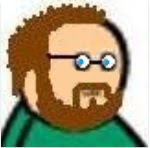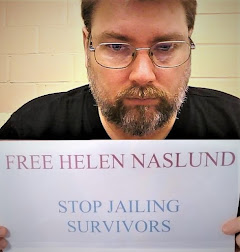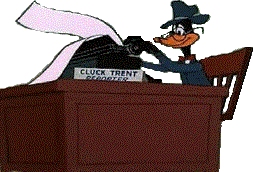By Scott Bakker
(1967-) Ontario
People have
read Neuropath, plot-wise a horror story of sorts, and said it changed their
whole perception of the human mind and that it was a very creepy experience.
When I read the book, it was a profound joy.
The story is
creepy at times, yes, but the meat of this book is not contained in the plot.
It is in all the state-of-the-art testimony from the neuroscience community which
Bakker shares; the tidbits of scientific learning which suggest rather
unarguably that we human beings are extremely mistaken about what we human beings are.
And while he
presents most of this testimony in rather a poor light, that we should find these
discoveries disturbing, it is possible (and more appropriate, I suggest) to view these discoveries from a much
more joyful perspective. For, to know thyself is extremely empowering. To know
thyself, or rather, the genuine nature of the human brain, especially within
the greater context of the nature of life itself, is to understand the amazing
thrilling potential of the human being and our potential effect on the
universe, and to understand the great hurdles that have detained us just inches from the starting block of conscious evolution, and to manifest great
capacities for pity and forgiveness, and to see much deeper through the veil of
illusions which blanket our society.
What Bakker
may not realize, is that these discoveries are not new. Poets have described
these precise realities for hundreds of years, but in different terminology. As
someone who was able to access those poetic ideas only after indulging in
introspective self-discovery at great length, it is always joyful to find
consolidation in literature, but what a find indeed, to see that the science
community is now agreeing wholeheartedly with ancient poets. Now if only they
realized it. If only the population at large would realize it. What great change might that inspire?
This is a must-read book for anyone who, like Neo from The Matrix, feels innately that there is something not quite real about the world, or perhaps, about yourself.
A passage:
“The world is on the brink, Goodbook. I’m simply the first to cross
over.”
Thomas knew what he was talking about, but for some reason found
himself pretending otherwise. “Brink. What brink?”
Neil wasn’t buying. “Is it the kids?”
“What are you talking about?”
“Are they the reason?”
“The reason for what?”
“The reason you moved back to Disney
World?”
The confusion, the double-take disorientation, evaporated, and Thomas
suddenly felt focused, the way only whiskey and outrage could make possible.
“You’re drunk, Neil. Leave them out of this.”
Disney world was their pet term for the world as understood by the
masses, one papered over with conceit after comforting conceit. A world
anchored in psychological need rather than physical fact. A world with a
billion heroes and happy endings, where the unknown was irrelevant and
confronting your own weaknesses was the breakfast of losers.
“You know, I find it hard to remember what it’s like living with one
foot in both worlds. To know, on the one hand, that paternal love is simply
nature’s way of duping us into perpetuating our genes—“
“It’s not duping… Look, Neil,
you’re really starting to piss me—“
“Not duping? Hmm. Then tell me, why do you love your son?”
“Because he’s my son.”
“And that’s an explanation?”
Thomas had glared at his friend. “That’s the only one I need.”
“Evolution wouldn’t have it any other way,” Neil had said. “It takes a
lot of commitment to raise a child to reproductive age.”
Thomas tossed back his shot, clenched his teeth in revulsion and
dismay. What the fuck was going on?
“Because you love your kids,” Neil continued, “you expend tremendous
resources on them, you train them, feed them, protect them, you would even die
for them. You do all the things that your
genes just happen to require, and for reasons that have nothing to do with
the harsh realities of natural selection.” Neil frowned, leaned back into the
cushions. He hooked his toes on the coffee table. “And that’s not duping?”
“They’re just different descriptions of the same thing,” Thomas said.
“Different angles.”
Neil reached out to pour them two more shots of whisky. “I guess you
have no choice,” he said.
“What do you mean?”
“To rationalize. To set up shop in Disney World.”
Thomas shook his head. “Look. Neil. All this stuff was great in
college. I mean we were soooo radical, even in Skeat’s class, mopping the floor
with lit majors, freaking people out around the bong…” A pained grimace. “But
now? C’mon. Give it a rest.”
Neil was watching him carefully. “That doesn’t make it any less real,
Goodbook.” He gestured to the TV, where lines of Muscovites stretching out into
a haze of grey snow shared the screen with talking heads and warm studio
lighting. “Just look. It’s ending,
just as Skeat said it would. No virulent pandemic, no mass environmental
collapse, no thermonuclear Armageddon, just mobs and mobs of people, hominids
pretending to be angels, clutching at rules that don’t exist, feeding,
fighting, fucking…”








.jpg)



























2 comments:
I love Neo from The Matrix so it sounds like something I'd find interesting.
Good luck with the 2015 A to Z Challenge!
A to Z Co-Host S. L. Hennessy
http://pensuasion.blogspot.com
Your posts have a way of making me want to run to the library and borrow them all. This one I find especially intriguing because of it's relevance to us now.
Post a Comment